Are you facing a situation where you need to request a change in a due date? It can be a bit daunting, but a well-crafted letter can make a significant difference. Whether you're dealing with an academic deadline or a project timeline at work, asking for an extension doesn't have to be stressful. For tips on how to structure your request effectively, keep reading!

Polite tone and respectful language.
The request for a due date change can be communicated with importance and clarity. Acknowledge the original deadline, emphasizing the reason for the change request, such as unforeseen circumstances or scheduling conflicts. Clearly state the desired new due date, ensuring it is realistic and considerate of the recipient's timeframe. Express gratitude for their understanding and flexibility regarding the situation, reinforcing a collaborative spirit. Include specifics like project names, current deadlines, and relevant dates to provide context. Validate the impact of the request on the recipient's schedule while assuring that the change will contribute positively to the overall progress and quality of the work. Maintain a courteous tone throughout, reflecting professionalism and respect for the recipient's efforts.
Clear explanation of the reason for the request.
A due date change request is crucial for maintaining effective project management and ensuring timely deliverables. Occasional factors such as unforeseen circumstances can necessitate this request, especially in environments like academic settings or corporate projects. For instance, unexpected illnesses (such as seasonal flu affecting multiple team members), significant personal events (like a family emergency), or resource constraints (due to supply chain disruptions) can create challenges in meeting established deadlines. Clear communication regarding these challenges ensures that supervisors, clients, or educational authorities understand the rationale behind the request, thus facilitating a smoother negotiation for an extended deadline to maintain quality standards and project integrity.
Specific new due date proposal.
A change in the due date for project deliverables can significantly impact timelines and resource allocation. For instance, the original deadline of November 15, 2023, may be impractical due to unforeseen delays such as resource availability or unexpected project scope changes. Proposing a revised due date of December 6, 2023, allows for necessary adjustments without compromising the quality of deliverables. This extension aims to facilitate thorough reviews and ensure all stakeholders, including team members and clients, can provide their input, ultimately leading to a more successful project outcome.
Acknowledgment of any inconvenience caused.
A due date change request can often cause inconvenience for all parties involved. Acknowledging this, it is essential to communicate with respect and understanding. For instance, when requesting a modification to deliverables or deadlines, it is crucial to highlight the specific due date in question, any relevant project milestones, or even stakeholder expectations. Being transparent about the reasons for the needed alteration fosters goodwill, especially in collaborative environments. Acceptance of the alteration must consider potential ripple effects on resources, schedules, and overall project timelines. Clear communication ensures all stakeholders remain aligned and informed throughout the adjustment process.
Contact information for further communication.
Due dates can significantly impact project timelines in various professional environments. Changing a due date requires clear communication to all involved parties. Stakeholders may include project managers, team members, and clients. Providing updated due dates ensures that everyone is aligned to new expectations. Utilizing professional messaging platforms such as email or project management software like Asana can facilitate this communication effectively. Include direct contact information such as phone numbers and secondary email addresses for further inquiries. A well-structured message often includes the reason for the change, new due date, and any adjustments needed in workflow or resource allocation. This approach fosters transparency and maintains project integrity.

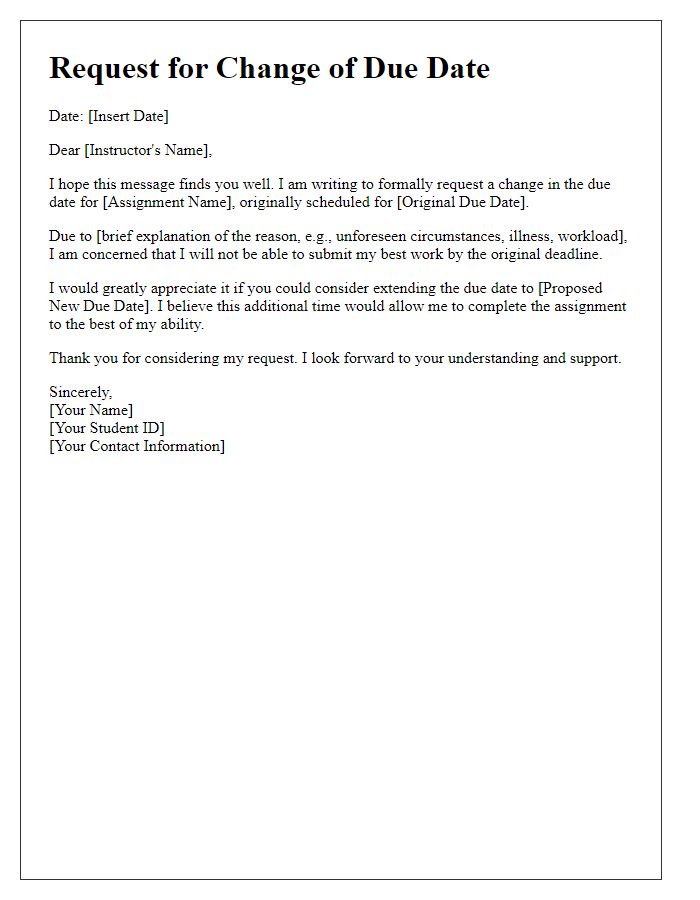
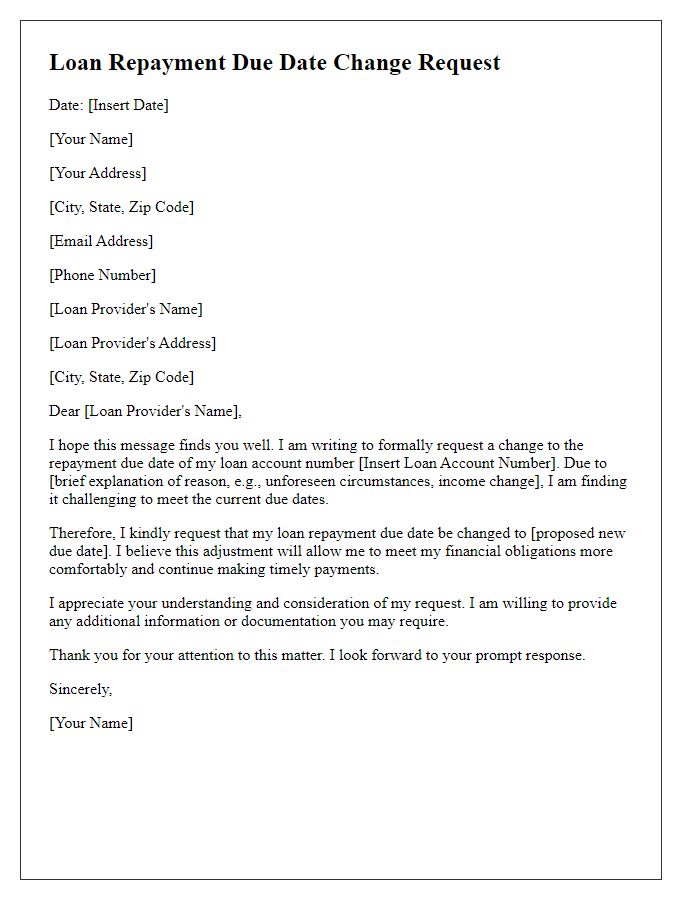
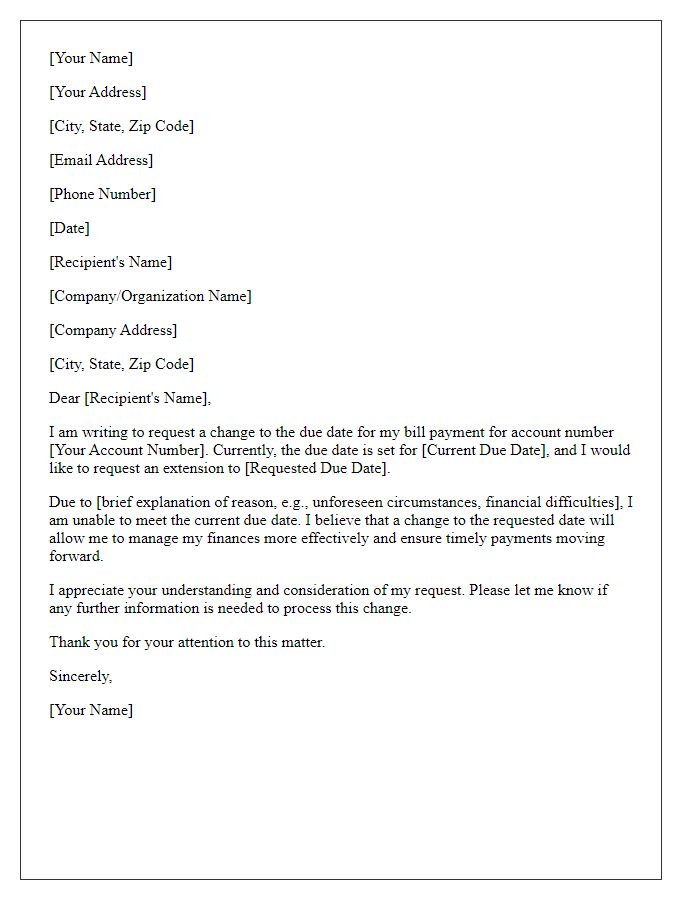
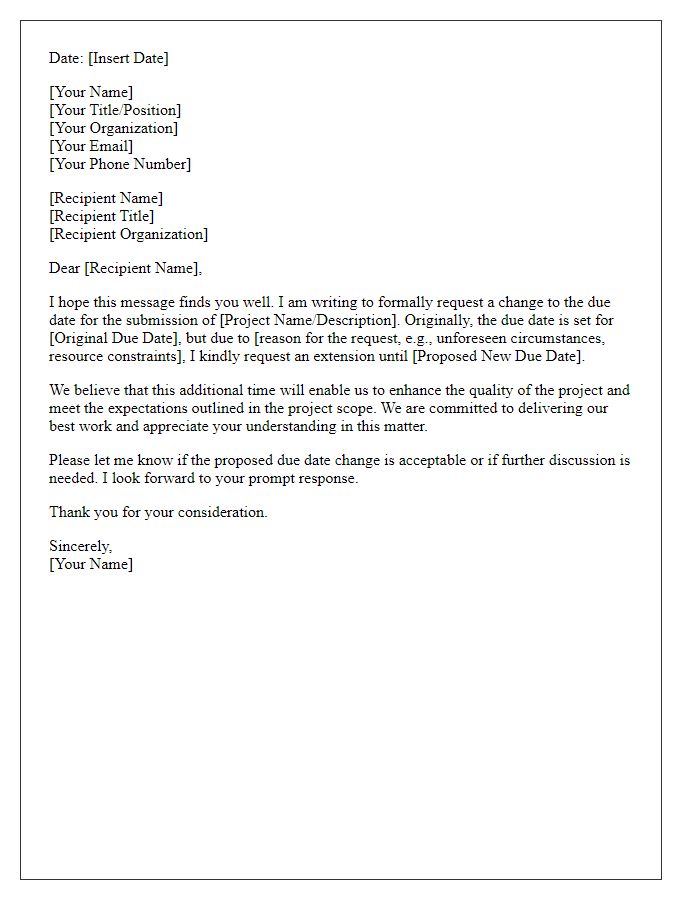
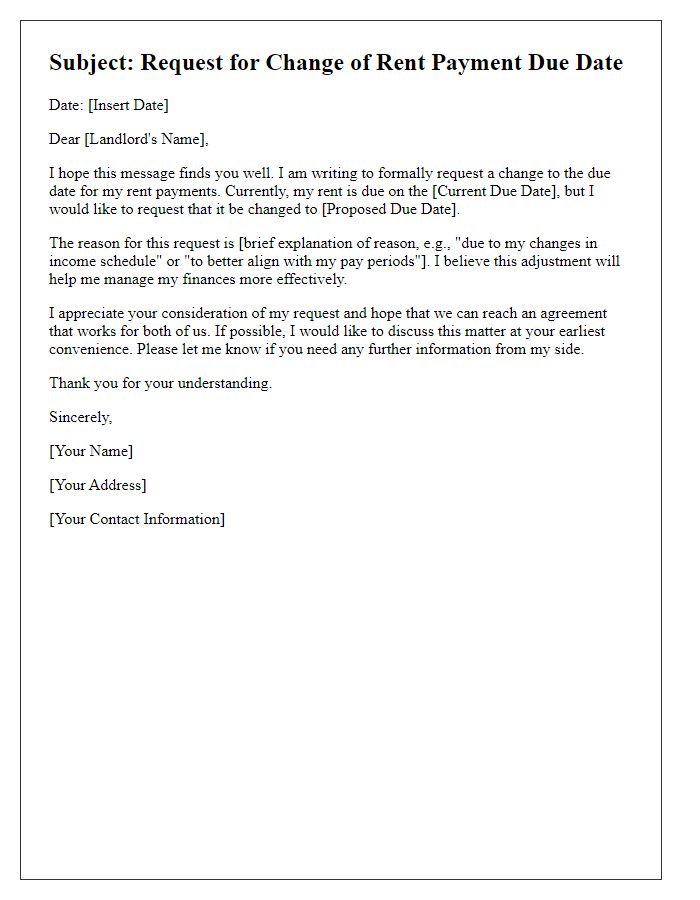
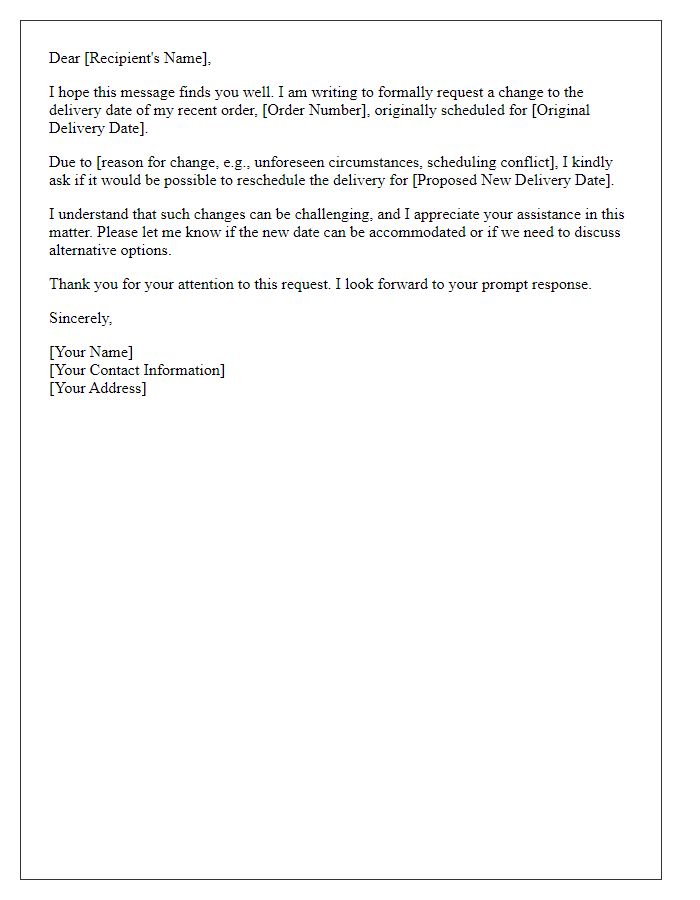
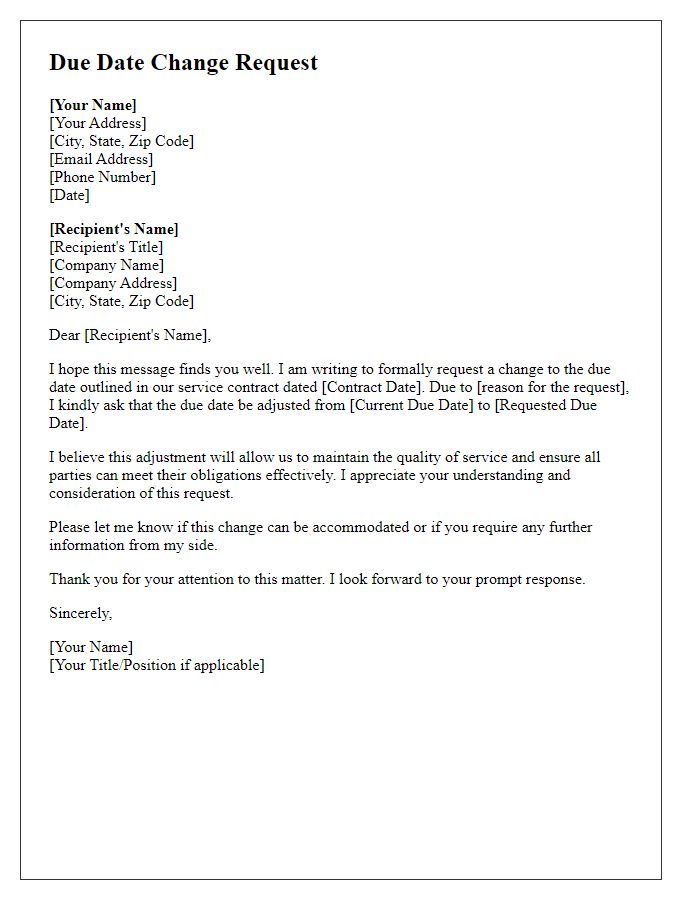
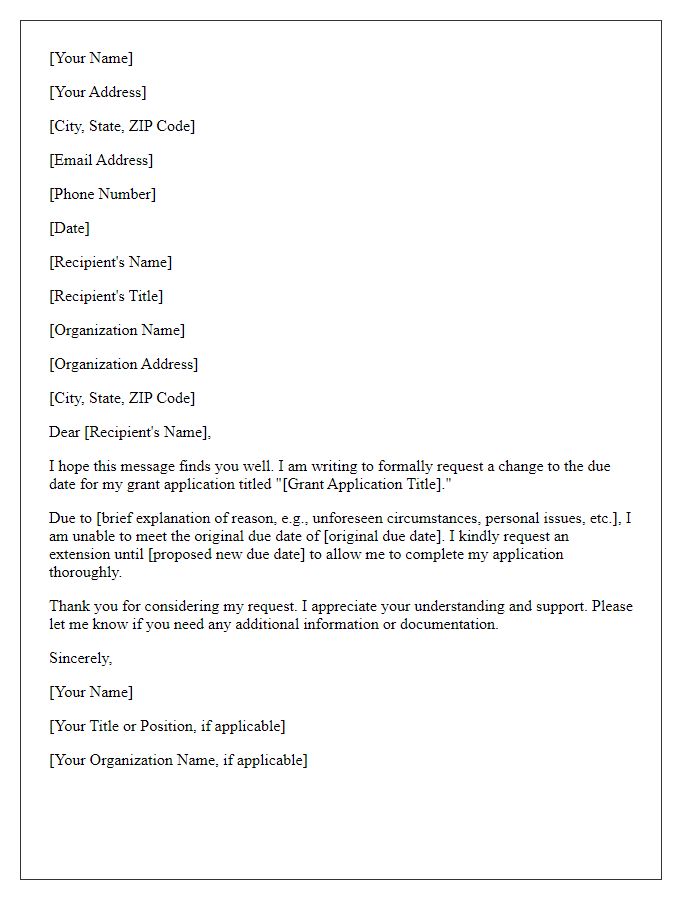
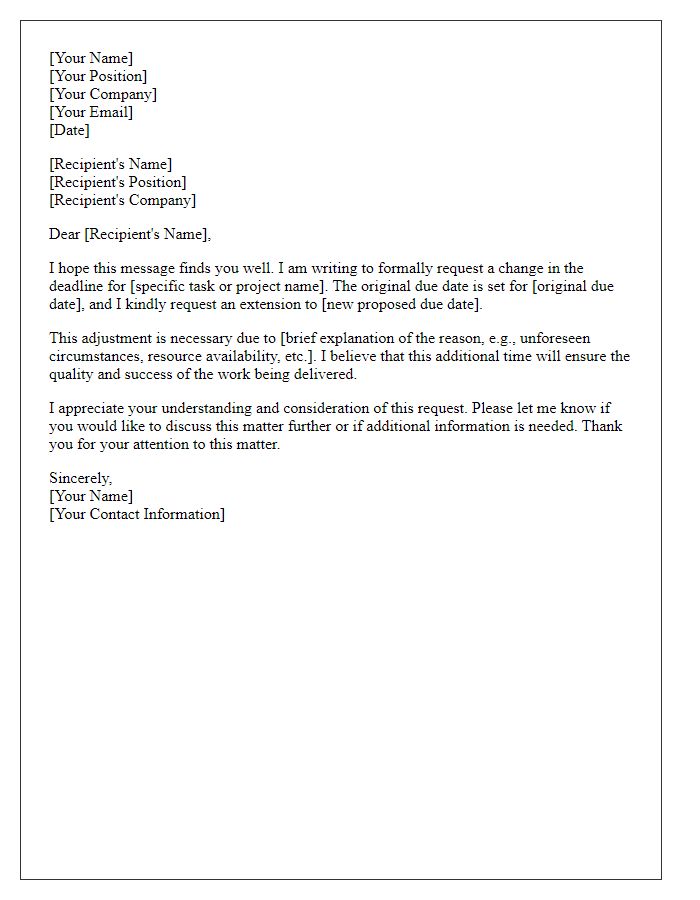
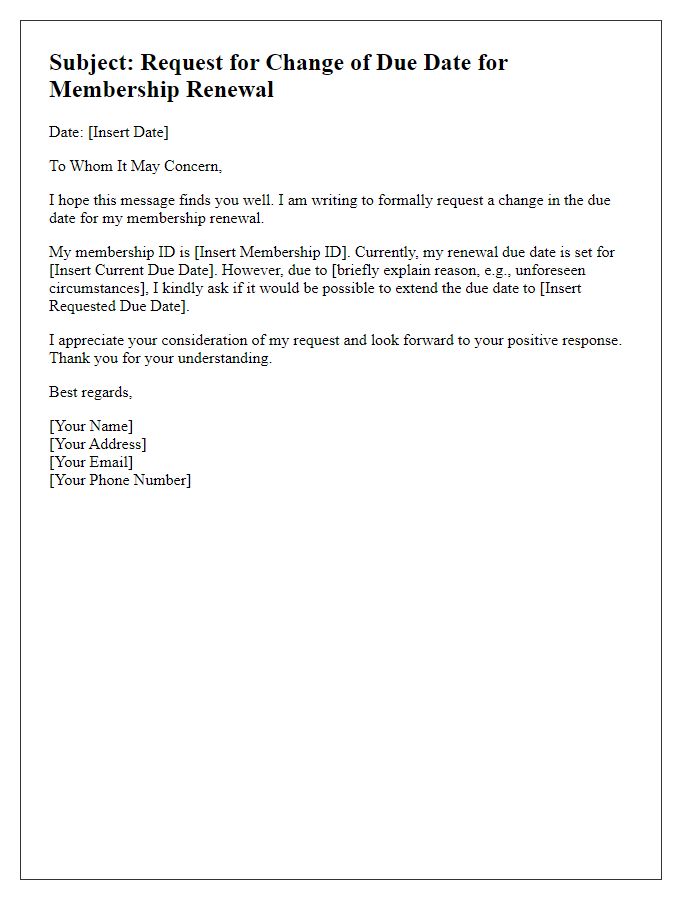


Comments